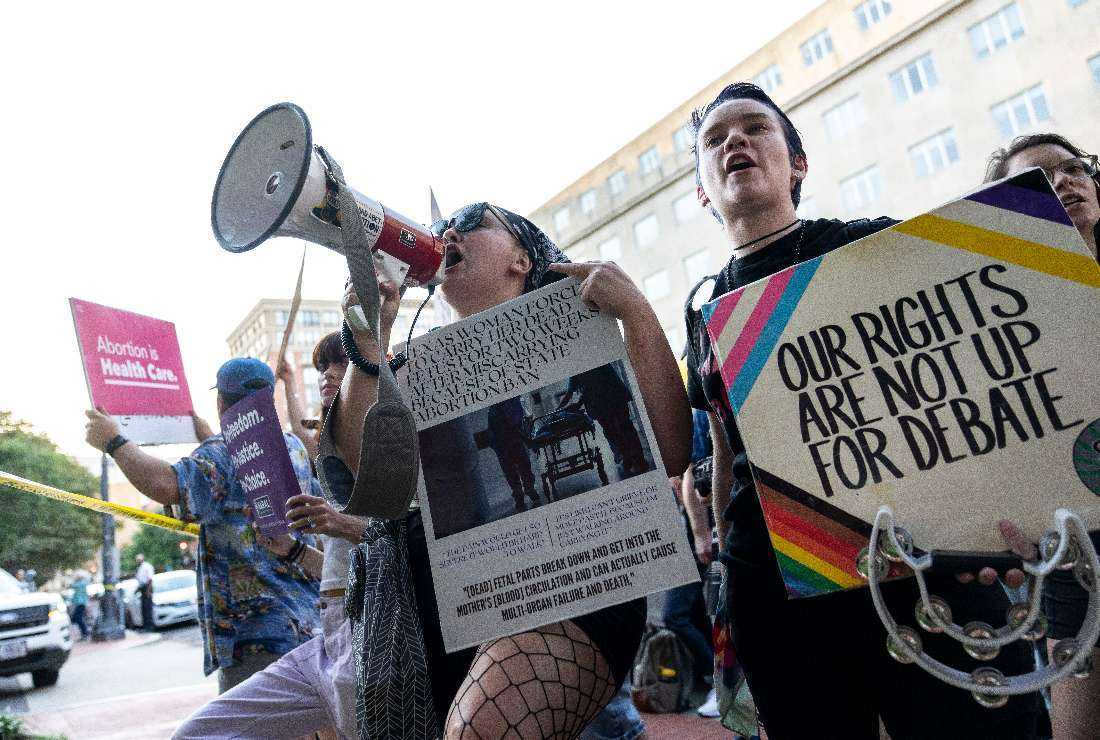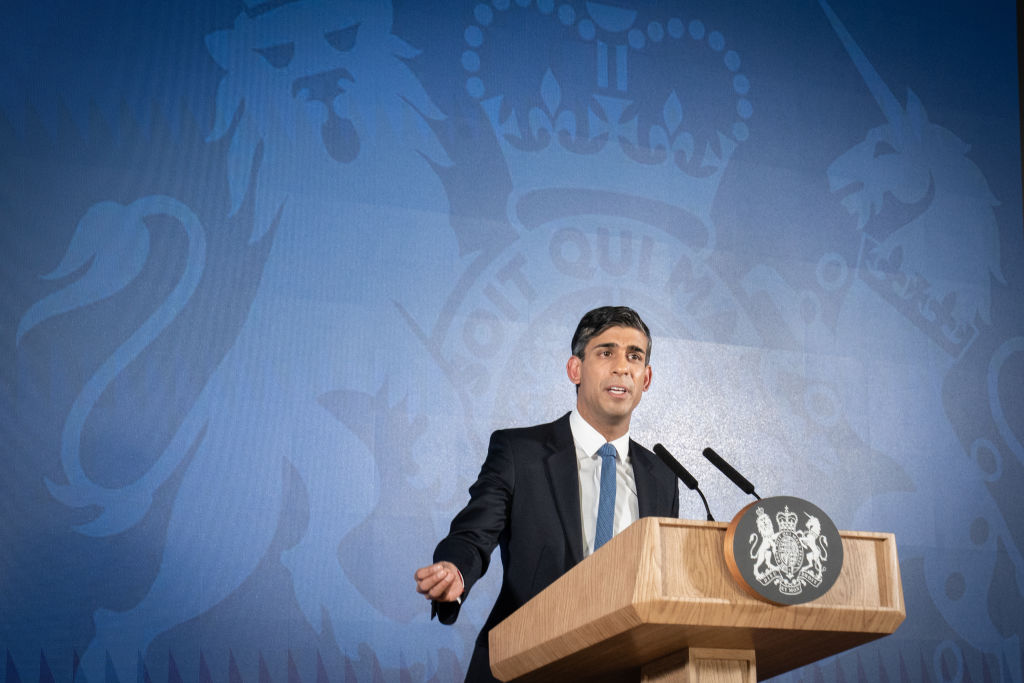FROM THE HORSES MOUTH
How the Catholic Church influenced the pro-life movement
Experts see Dobbs decision as an opportunity to call on pro-life movement to embrace Church's teachings on human life

Abortion rights activists protest as guests arrive for the Susan B. Anthony Pro-Life Americas annual gala and fundraising dinner at the National Building Museum in Washington, DC, on Sept. 13, 2022. (Photo: AFP)
By Kate Scanlon, OSV News
Published: January 04, 2023 04:58 AM GMT
While the nation's legal landscape regarding abortion has changed after the U.S. Supreme Court's Dobbs v. Jackson Women's Health Organization ruling in June 2022, the church's pro-life advocacy has entered a new phase. But this is nothing new for the church and members of the faithful who have long been key players in efforts to oppose expanded abortion laws.
In fact, early efforts to oppose broadening the practice of abortion in the United States were largely driven by Catholics.
Historian Daniel K. Williams, author of "Defenders of the Unborn: The Pro-life Movement before Roe v. Wade," told OSV News in an interview that when abortion liberalization laws were proposed in the mid-1960s, "the overwhelming majority of the people speaking out against those bills were Catholic."
"Even in the early 1970s, the movement was probably more than 80% Catholic," Williams said.
Most of the pro-life organizations that formed in the mid to late 1960s and early 1970s were in northern states in traditionally Catholic areas, "which were also strongly Democratic constituencies," he said.
"Many of the pro-life activists approached the subject of abortion from the standpoint of a broader Catholic social ethic that viewed prohibitions on abortion as one piece of a larger concern for the poor and marginalized, one piece of a larger campaign for a society that would ensure human flourishing," he said.
Those activists were dismayed that, in their view, a right to life was being challenged by these proposals, he said. They campaigned against them with a message of a package of rights closely tied to the philosophies behind the New Deal and the Great Society. These same activists were also often staunch opponents of the Vietnam War.
As early as the late 1940s, Williams said, when the nation's U.S. Catholic bishops created a model list of human rights, "they started with the right to life, but then they also included the right to an education, the right to protection of labor unions, the right to a living wage."
When the U.S. Supreme Court issued its 1973 Roe v. Wade decision, abortion opponents included Democratic Sen. Ted Kennedy of Massachusetts "and even some liberals who were not Catholic, like Jesse Jackson, and many African Americans were strongly opposed to abortion in the 1970s," Williams said.
At the same time, many prominent Republicans, such as first lady Betty Ford and the future Vice President Nelson Rockefeller, were supportive of legalized abortion.
After Roe, however, the Democratic Party was largely split on the issue of abortion due to its pro-choice feminist and pro-life Catholic factions, and it avoided taking a firm position on the ruling. This paved the way for abortion opponents to form an alliance with Republicans instead.
In the 1980s, Williams said, the Republican Party and pro-life activists embraced a judicial strategy to change or reverse Roe "not through a constitutional amendment, but through the Supreme Court, by conservative appointments to the Supreme Court, that really did have an effect and brought the pro-life movement into closer alliance with the Republican Party building on that foundation that was already laid."
By the late 1980s and 1990s, Williams said, a "significant difference between the two parties in terms of their congressional delegations, regarding the abortion issue" began to emerge in ways they had not before.
Over the course of the 1980s, millions of socially conservative evangelicals came eventually to join Catholics in opposition to abortion.
"They embraced a lot of the traditional pro-life thinking but processed that through the lens of a different set of political commitments," Williams said, specifically "a desire to see secularization and the sexual revolution reversed in society" as opposed to Catholics' broader social justice ethic.
Mary FioRito, a Catholic commentator and Cardinal Francis George Fellow at the Ethics and Public Policy Center in Washington, D.C., told OSV News that abortion is not a Catholic issue but a human rights issue. She said the Catholic Church and its members were poised to take the issue on as a part of the church's social justice work. Meanwhile, the position was guided by the church's intellectual tradition, which "equipped it with really good lawyers and other advocates, scientists, doctors who could help argue the pro-life case in the public square," she said.
FioRito pointed to the late Pennsylvania Gov. Robert Casey, a Catholic Democrat, who signed a state law requiring parental consent and a 24-hour waiting period for an abortion in his first term. Planned Parenthood challenged that law, leading to the Supreme Court case Planned Parenthood of Southeastern Pennsylvania v. Casey. The Supreme Court upheld legal abortion as part of a constitutional right to privacy in a 1992 ruling. Along with Roe v. Wade, that ruling was also struck down with the court's Dobbs ruling.
Olivia Gans Turner, a Catholic and president of the Virginia Society for Human Life, a state affiliate of the National Right to Life Committee, told OSV News that her group is non-sectarian, and is "focused on the scientific reality that everybody can be pro-life because everybody's life starts the same way at the moment of fertilization."
But Catholic pro-life efforts, she said, are "companionable" to such a focus, because both recognize abortion is an act of violence against a child that can also lead to psychological damage to mothers and fathers.
One of the foremost examples of this, she explained, was Project Rachel founder Vicki Thorn, who passed away in April 2022. Thorn was an influential part of the Catholic Church's pro-life advocacy by ministering to women who had undergone abortions.
FioRito agreed and said Thorn demonstrated "tremendous compassion," and her efforts with Project Rachel helped "sensitize people not to be judgmental about women who've had abortions." Thorn's witness helped the pro-life movement recognize that many women experience various types of coercion prior to an abortion, whether from a partner or even from their parents or employers.
Experts see the Dobbs decision as an opportunity for Catholic scholars and leaders to call on the pro-life movement to embrace the totality of the Church's teachings on human life -- not solely opposition to abortion -- in its efforts to build a culture of life.
O. Carter Snead, director of the de Nicola Center for Ethics and Culture and Professor of Law and concurrent professor of political science at the University of Notre Dame, told OSV News partisanship surrounding abortion as a political issue has led to criticism of the church or the U.S. bishops as singularly focused on abortion.
"It has always been the case that the Catholic Church has been a strong witness in favor of life," Snead said, noting that many bishops and Catholics do see abortion as a "unique problem that does require a sustained response," but the church never abandoned its other social welfare efforts. He said the U.S. bishops are "doing work on immigration, poverty, health care, war, racism, and all these other very deep and important questions."
In fact, the Catholic message coming out of the U.S. bishops' fall assembly contained a warning that without "radical solidarity" for both mothers and babies in the wake of the Dobbs ruling, the church and pro-life movement could face a situation where they won the fight to overturn Roe, only to lose the overall struggle for a culture of life.
In his Nov. 15 address to the U.S. Conference of Catholic Bishops, conference vice president Archbishop William E. Lori of Baltimore said the Church “cannot remain silent about abortion” but it cannot afford to ignore “the deep social problems that push women toward having an abortion.”
“Our commitment to help mothers bring their babies to term," he said, "is wholly compatible with our commitment to work for a society in which both mother and child can flourish."









